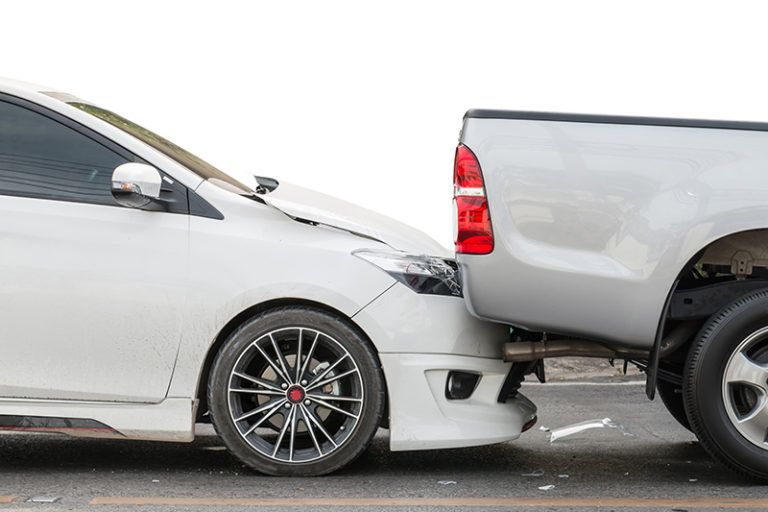Automobile coverages and how insurance works can be confusing, especially after an accident. Understanding automobile insurance and the differences between the various types of coverages is important. It’ll help you decide what you need to include in your personal policy. This will help to protect yourself, your family, your passengers, and other people on the road. This article explains the different categories of auto insurance and how they apply.
Bodily Injury Liability Insurance
Colorado is a “fault” state, meaning for drivers injured in a collision caused by another at-fault driver’s negligence must first look to the at-fault driver’s bodily injury liability insurance to compensate for injuries, medical bills, and property damage. Colorado law requires all automobile owners in the state of Colorado to carry bodily injury liability insurance. Bodily injury liability insurance (“liability” insurance) is coverage available to a third-party claimant, meaning the person who is injured in a collision due to no fault of their own.
The minimum required limits that auto owners must carry in Colorado are $25,000 for bodily injury or death per person and $50,000 total for all persons in any one accident; and $15,000 for property damage in any one accident. It is not uncommon for the minimum liability limits to be easily exhausted following a single hospital visit. You should be aware that if you own significant assets, and do not carry a sufficient amount of bodily injury insurance and then cause an accident, you may vulnerable to an excess judgment that could put your personal assets at risk. Personal umbrella policies can be purchased to cover over and above your automobile bodily injury policy limits to cover any additional amounts you may owe.
Requirements
Insurance companies in Colorado are now required by law to disclose liability insurance information, including the liability insurance limits, which is available to third-party claimants. See C.R.S. §10-3-1117, went into effect on 1/1/20. What this means is that the insurance company for a negligent driver who causes an accident is required to provide the liability insurance information to a third-party claimant, an individual who gets hurt in a motor vehicle collision through no fault of their own. The same is true if the written request is made by the third-party claimant’s attorney. Following the proper written request by the claimant or the claimant’s attorney, following information with regard to each known policy, including umbrella insurance, must be provided:
- The name of the insurer;
- The name of each insured party, as the name appears on the declarations page of the policy;
- The limits of the liability coverage; and
- A copy of the policy.
The liability insurance carrier must provide the requested information within 30 days after receiving a written request. The statute provides a remedy should the liability carrier fail to comply with the new statute. It institutes:
- $100/per day fine
- attorney’s fees
- costs incurred by the claimant if he or she has to enforce the disclosure
The stated purpose for enacting the new statute was to assist “Colorado residents evaluate whether their uninsured or underinsured motorist coverage will be triggered.” The requirement to disclose the liability information also saves resources and time. Injured third parties will not have to file a lawsuit just to find out the policy limits information. Information regarding the new statute and how to submit a request for information is available on the Colorado Department of Regulatory Agencies website.
Uninsured or Underinsured Motorist Coverage
Because the minimum policy liability limits in Colorado are often insufficient to compensate for injuries and damages, your own underinsured motorist coverage can be used to make up the difference. Unlike liability insurance, Colorado law does not mandate that a person carry uninsured or underinsured (UM/UIM) motorist coverage. UM/UM insurance is coverage you can add to your own personal auto insurance policy that is there to protect yourself, your passengers, and your resident relatives in the event of injuries caused by an underinsured negligent driver. Some personal umbrella policies can also provide UM/UIM coverage. This is to protect you and your family if you’re injured by an underinsured negligent driver.
It is critically important to ensure that you not only have UM/UIM coverage on your own auto policy, but that you have enough coverage. Uninsured motorist coverage is also important to make sure you are covered in the event that you are injured by an uninsured driver or involved in a hit-and-run accident. UM/UIM coverage can be rejected from being included on your policy. However, it must be done in writing and signed by the insured. You should also be aware that insurance companies are not allowed to raise your premiums for drawing upon your own underinsured/uninsured motorist coverage when the accident was not your fault.
Medical Payments Insurance Coverage
Colorado law requires that all Colorado automobile owners include at least $5,000 of medical payments “med pay” coverage for each policy issued. Med pay coverage is available to pay for the first $5,000 in medical bills incurred after a motor vehicle accident. It pays regardless of which driver was at fault. Med pay is insurance purchased to protect you, your family, and your passengers.
Auto owners can elect to purchase a higher amount than the $5,000 minimum limits (recommended). Auto owners can also elect to reject med pay coverage. To do so, the insured must reject by signing and rejecting the med pay in writing. Insurers are required to keep the written rejection on file for at least three years from the date of the rejection. If the insurance company is unable to produce a rejection in writing signed by the insured, the policy is presumed to include the minimum med pay limits in the amount of $5,000.
Insurance companies are required to hold $5,000 for the thirty (30) days following an accident. This is to pay for emergency medical care, including ambulance, hospital, and trauma physician medical bills. After the first thirty days, you can submit any accident related medical bills for payment. Med pay coverage is especially important for individuals who do not have health insurance.
One advantage of using med pay is it’s immediately available to cover the costs of medical bills following an accident. Another advantage is that unlike health insurance that have a right to reimbursement from an injured person’s settlement, in Colorado, med-pay insurers do not have the same right of reimbursement. We highly recommend carrying as much med pay insurance as possible. This is to insure that you, your family members, and your passengers are protected in the event of an accident.
Property Damage – Collision and Comprehensive Coverage
Auto owners are required to carry at least $15,000 in liability property damage coverage. Collision insurance pays for property damage when your vehicle is damaged in a collision or by an object. It pays regardless of whether the accident is caused by you or someone else. Comprehensive insurance protects you against damage to your own car from perils such as:
- fire
- theft
- glass damage
- windstorm
- flood
- vandalism
- hail damage
- or other causes
Contact Us with Questions
Navigating the different types of automobile insurance can be challenging and confusing after being in a collision. This is especially challenging if you are suffering from serious bodily injuries such as a traumatic brain injury. We would like to help you understand the differences in the types of insurance. Should you have any questions, please contact us at (303) 595-5900.







